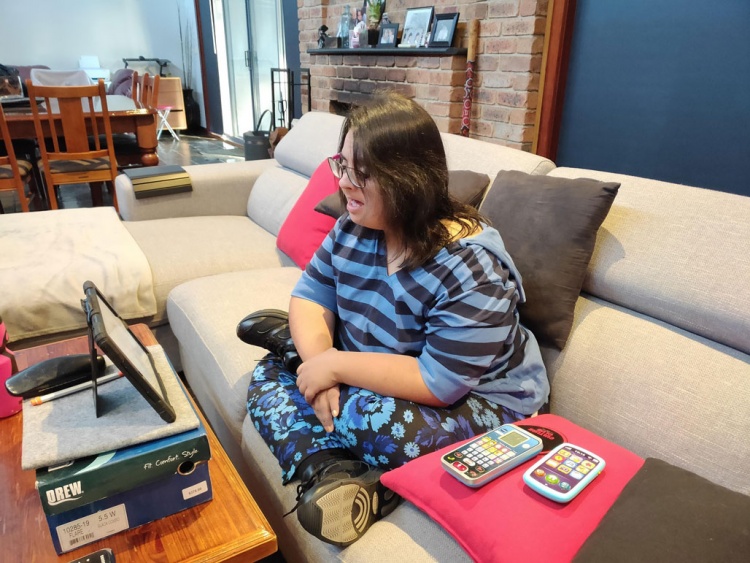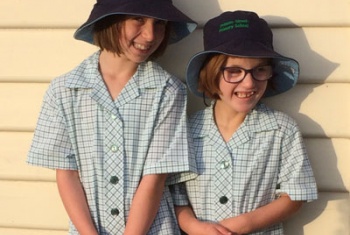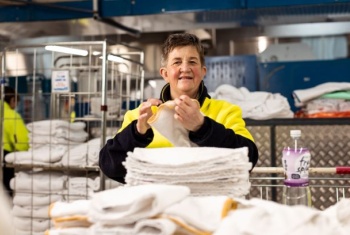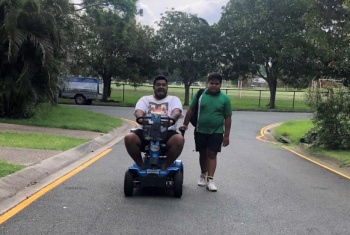Melbourne mum Fran Thomas said she feels blessed to have her 29-year-old daughter Casey’s NDIS funding to rely on to keep Casey on track to meet her goals.
“When COVID-19 hit I thought ‘how are we going to continue to work towards Casey’s goals when we are so restricted in what we can do, and where we can go’,” she said.
“Immediately, I contacted Interact Australia (her chosen provider) and organised a meeting with all four of Casey’s regular support workers.
“They have all been working with her for years. They know her likes and dislikes and what she is and isn’t capable of, so we all met to discuss what alternative activities we could put in place so Casey’s goals would stay on track and she wouldn’t regress.”
Fran said together, with a bit of creativity and imagination, they came up with an alternative daily routine and they were pleased at how well Casey adapted to it.
“We also involved Casey’s therapists so now she has a whole new home-based program to work on, which will keep her moving forward,” she said.
Casey has Down syndrome, epilepsy and a moderate intellectual disability. The biggest challenge for her was understanding and accepting the online therapy environment.
“Casey has never used her iPad for online therapies before so we thought a good first step would be to introduce her to Skype to get her familiar and comfortable using it,” Fran said.
“When she first saw her friends pop up on her iPad right in front of her, you should have seen her reaction. It was priceless.
“At first, I could see Casey was a bit startled but then she turned to me and said, ‘Oh. Look mum. There’s so and so’, and then she started waving at them. I think she took to it well because it’s a bit like watching TV,” Fran added with a laugh.
Prior to COVID-19, Casey was doing really well with her community access, attending Zumba classes at the local community centre in Burnside, in Melbourne’s west. All that has now changed.
“We’ve introduced Casey to online exercise classes. She loves doing Zumba so her support workers have been doing a few YouTube classes with her,” Fran said.
Casey’s speech therapist, her physiotherapist and her exercise physiologist have all been supportive too.
“They have been wonderful,” Fran said. “We have all worked collaboratively, with Casey’s best interests at heart, to transition her to a new, productive and safe routine.
“Casey’s exercise physiologist recommended and approved gym equipment for her to use at home and we were able to purchase it all with her NDIS funding.
“Just simple pieces of equipment, like dumbbells and resistance bands, which weren’t costly so now she can continue to work on increasing her muscle tone while we all have to stay at home.”
Fran said she is so grateful to have Casey’s NDIS funding in place and secure.
“Casey’s funding has been great,” she said. “It’s allowed her to do a lot more with her life than she would have been able to do if she didn’t have it!



